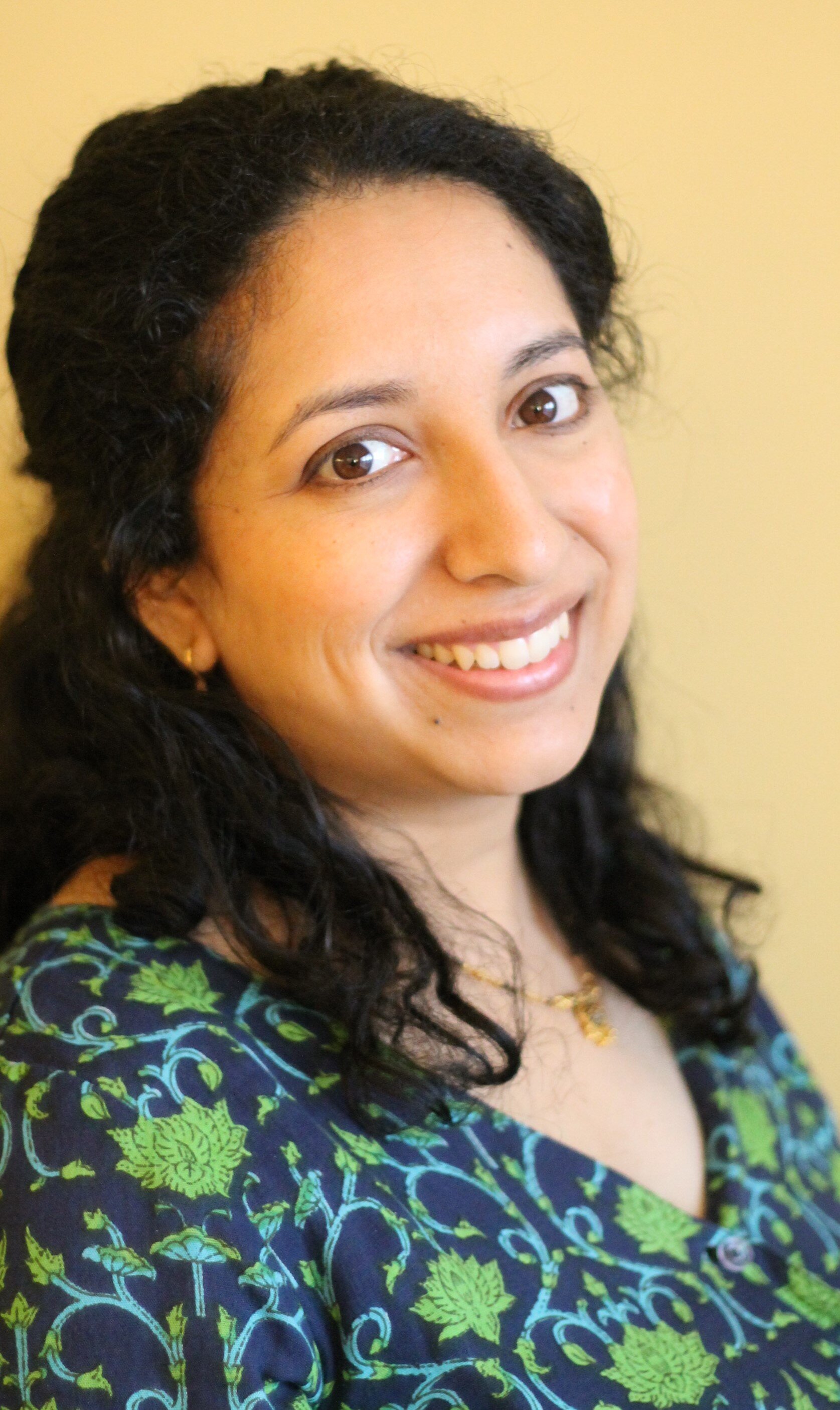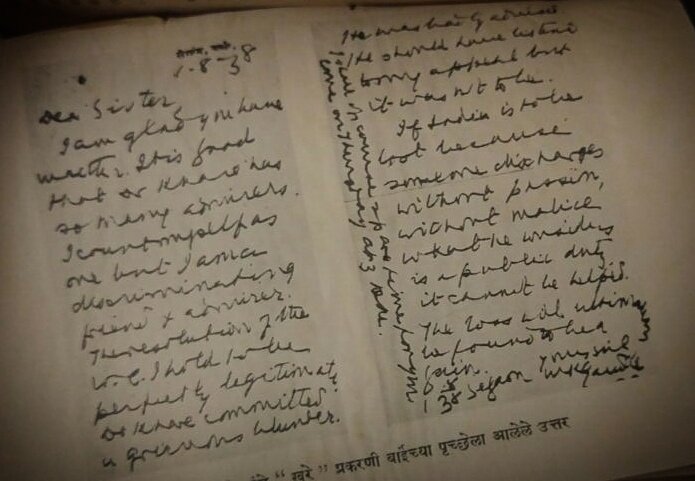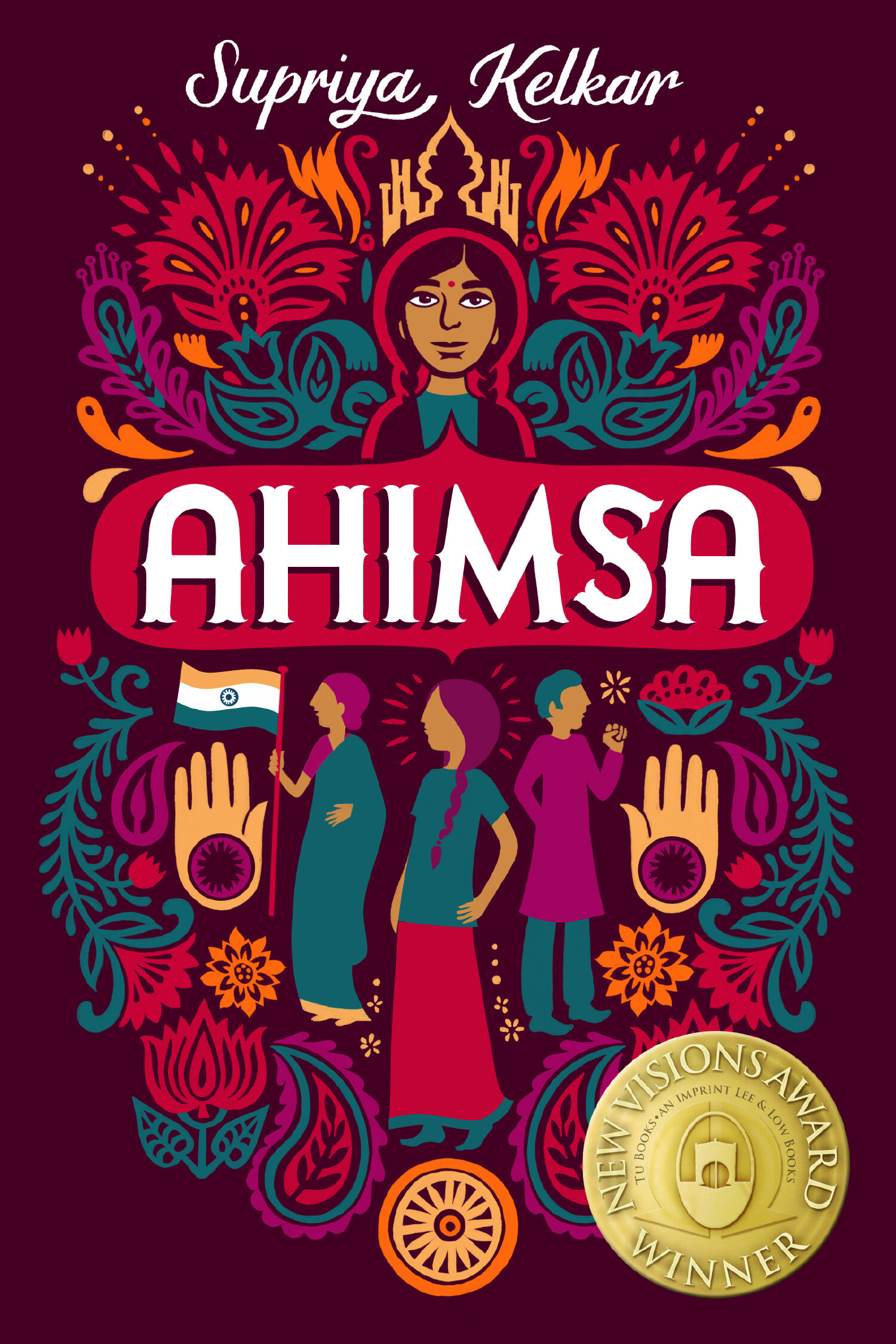Supriya Kelkar on Research and Family History in Ahimsa
 Winner of the New Winner Award from Tu Books/Lee and Low, Supriya Kelkar's debut middle grade novel, Ahimsa, takes place in 1940s India, against the backdrop of a nation struggling to unite even as its people fight for independence from British rule. Ten-year-old Anjali is the protagonist, thrown into the reality of a swiftly changing world when her mother announces that she has quit her job to follow Mahatma Gandhi and become a freedom fighter. I corresponded with Supriya in anticipation of her novel's release on October 2, which is, appropriately enough, Gandhi's birth anniversary.
Winner of the New Winner Award from Tu Books/Lee and Low, Supriya Kelkar's debut middle grade novel, Ahimsa, takes place in 1940s India, against the backdrop of a nation struggling to unite even as its people fight for independence from British rule. Ten-year-old Anjali is the protagonist, thrown into the reality of a swiftly changing world when her mother announces that she has quit her job to follow Mahatma Gandhi and become a freedom fighter. I corresponded with Supriya in anticipation of her novel's release on October 2, which is, appropriately enough, Gandhi's birth anniversary. [Uma] What came first for you with this story--the history, the character, an idea, an era, or something else? Talk about what led you to think about writing this book.
 [Supriya] It started with the thought of my great-grandmother, Anasuyabai Kale, a Gandhian freedom fighter in India who was jailed for her role in the movement. I was fascinated by the idea of a strong, sometimes flawed female leader in the early 1900s. As a screenwriter, I thought the story would make a great biopic. But no matter what I did, I couldn’t figure out how to write it as an interesting screenplay. I then thought about making it a fictional story, where the character based on my great-grandmother was not the protagonist, but rather, the mother of the protagonist. But again, I struggled to make it work. Then I had the brilliant idea to write it as a novel to work out the story beats, and then go back and write a screenplay with the solutions I had discovered in the process. Clearly, I had no clue what I was doing because it turned out writing a novel was not a quick and easy task!
[Supriya] It started with the thought of my great-grandmother, Anasuyabai Kale, a Gandhian freedom fighter in India who was jailed for her role in the movement. I was fascinated by the idea of a strong, sometimes flawed female leader in the early 1900s. As a screenwriter, I thought the story would make a great biopic. But no matter what I did, I couldn’t figure out how to write it as an interesting screenplay. I then thought about making it a fictional story, where the character based on my great-grandmother was not the protagonist, but rather, the mother of the protagonist. But again, I struggled to make it work. Then I had the brilliant idea to write it as a novel to work out the story beats, and then go back and write a screenplay with the solutions I had discovered in the process. Clearly, I had no clue what I was doing because it turned out writing a novel was not a quick and easy task![Uma] What sources, personal and research, did you tap while you were writing Ahimsa?
 [Supriya] My great-grandfather had written a biography of my great-grandmother. That book was a great resource. It showed me how life was at the time. The freedom movement could be very small-scale at times, with individuals doing their part to make a difference for a few other people in their area through protests and letter writing campaigns. It also showed how those changes could inspire greater changes in the country. I also used Mahatma Gandhi’s autobiography, an academic website on Dr. Ambedkar, and old newspapers for research. For personal sources, I spoke to several family members and friends to make sure I was representing the time accurately, including my parents. Since my great-grandmother and grandparents had all passed away, I relied a lot on my great-aunt. She was able to fill in a lot of details about her mother’s story and the time period for me.
[Supriya] My great-grandfather had written a biography of my great-grandmother. That book was a great resource. It showed me how life was at the time. The freedom movement could be very small-scale at times, with individuals doing their part to make a difference for a few other people in their area through protests and letter writing campaigns. It also showed how those changes could inspire greater changes in the country. I also used Mahatma Gandhi’s autobiography, an academic website on Dr. Ambedkar, and old newspapers for research. For personal sources, I spoke to several family members and friends to make sure I was representing the time accurately, including my parents. Since my great-grandmother and grandparents had all passed away, I relied a lot on my great-aunt. She was able to fill in a lot of details about her mother’s story and the time period for me. [Uma] I find as a writer that every book teaches me something. What did writing this book teach you?
[Uma] I find as a writer that every book teaches me something. What did writing this book teach you? This book taught me the importance of patience and not giving up. I wrote the first draft of Ahimsa in 2003. There were many times over the years that I wanted to give up on the manuscript because it felt hopeless and things weren’t happening fast enough on it. I’m so glad I stuck with it!
[Uma] What tripped you up along the way, even after you'd begun to feel more in command of the work?
[Supriya] Despite all the research through the years of writing Ahimsa, it wasn’t until I was working on the copyedit and double-checking my work that I realized a couple of the famous Gandhi quotes I had used in the book were probably things he had never said. It took a while but in the end, I was able to find words that were actually from one of his publications.
[Uma] Ahimsa is a concept that’s desperately needed in today’s contentious world. What do you want young readers—and their adult allies, too—to take away from this story?
The main thing I want readers of all ages to take away is the importance of empathy. Just because an issue doesn’t personally affect you, it doesnot mean the problem does not exist. I hope young readers will be inspired by Anjali’s journey from a child of privilege to someone who is very aware of the wrongs in her world and is willing to do what she can to right them.
[Uma] Congratulations, Supriya Kelkar. Much luck with this book and others yet to come.